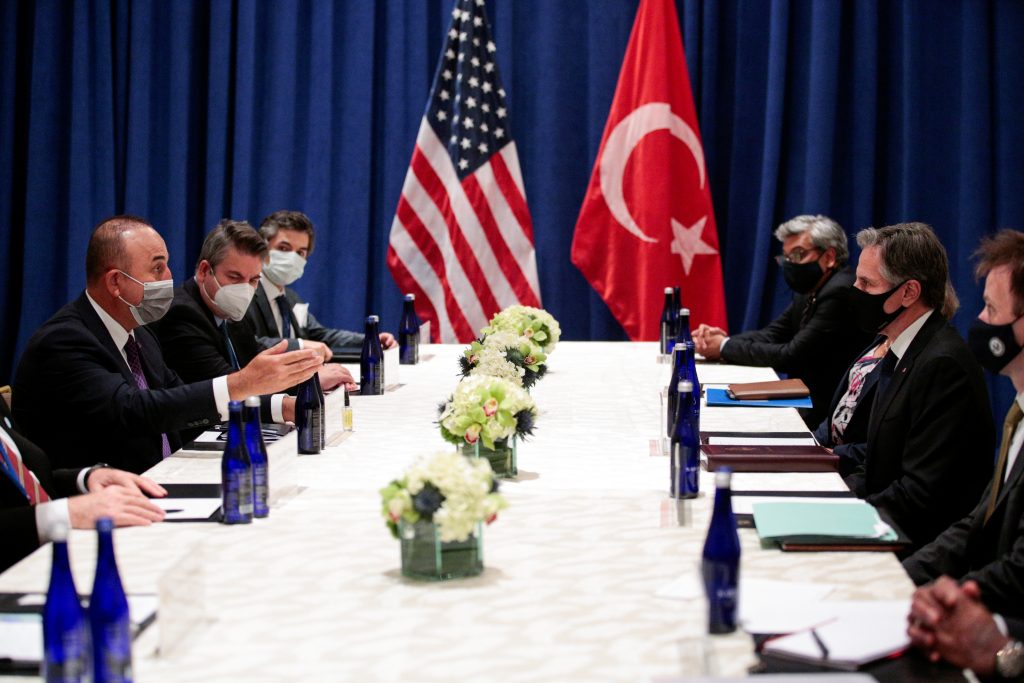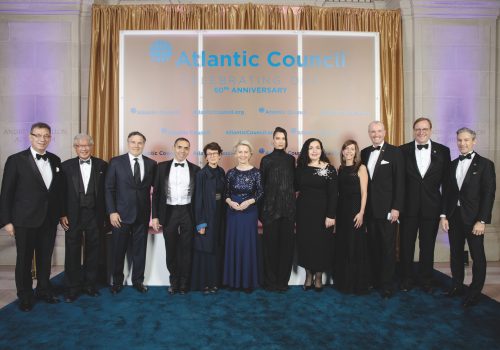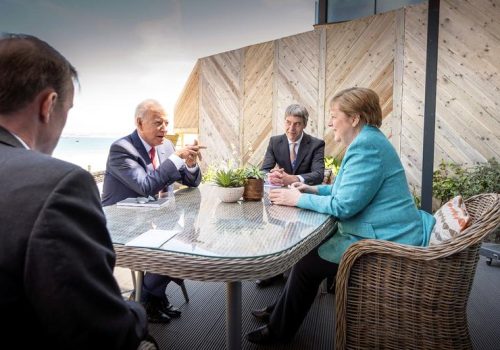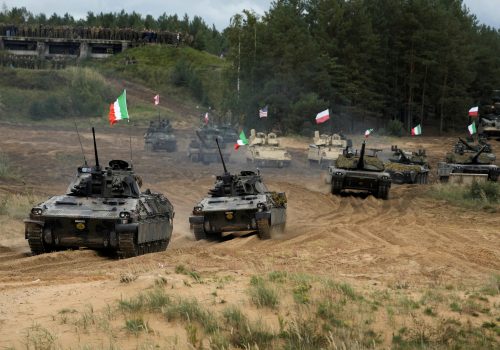Building bridges between two NATO allies, the United States and Turkey, at an unprecedented time.
The Atlantic Council IN TURKEY program aims to support the relationship between the United States and Turkey by promoting bilateral dialogue and strengthening transatlantic engagement with Turkey and its surrounding region through forward-looking research and high-impact, high-level convening. The program spotlights critical issue areas including energy, economics, business relations, migration, and security.
The Atlantic Council IN TURKEY strongly believes in the importance of the strategic partnership between the United States and Turkey, which for decades has formed the backbone of security and stability on NATO’s southern flank. In the spirit of dialogue and mutual understanding, the Council continues to act as a neutral platform, hosting US and Turkish officials for talks on and off the record on the broad range of issues affecting bilateral relations.
In 2021, the Council launched the inaugural US-Turkey Congressional-Parliamentary Fellowship, a program which convenes and connects eight staffers and advisers working in the US Congress and Turkish Parliament, respectively, to engage on and discuss all issues related to US-Turkey relations over a six-month curriculum.
“The United States needs to continue working with Turkey to support its democratic resilience, and the relationship should be mutually beneficial. Defense cooperation must be maintained, and relations should be bolstered with stronger business and energy ties. #StrongerWithAllies”
Defne Arslan
US-Turkey relations faced a transformative year in 2021. The change in the US administration has brought a change in the United States’ approach to allies and adversaries across the world. One week before Biden’s inauguration, the Atlantic Council in TURKEY hosted a public, virtual webinar to discuss the future of relations between the United States and Turkey. The changing international arena and posture of the United States have also spurred Turkey to reevaluate its relationships with rivals across the region and advance toward normalization with states including the United Arab Emirates, Saudi Arabia, Egypt, Armenia, and Israel.
While serious obstacles in bilateral relations remain, global developments have defined new opportunities and impetus for bilateral cooperation. Tensions over Russia’s aggression towards Ukraine increased coordination between the United States and Turkey as they attempted to forestall a Russian invasion. The divergences between Russia and Turkey over Ukraine were the subject of a public event in June.
With the end of NATO’s twenty-year mission in Afghanistan, Turkey and the United States negotiated to transfer control of Kabul Airport in the wake of the chaotic withdrawal. The challenge posed by the Taliban’s seizure of power in Afghanistan, as well as Turkey’s role in regional stability, were discussed in depth at an Atlantic Council public event in September. These bilateral and regional strategic developments are regularly analyzed in the program’s blog, TURKEYSource.
The changing international system has also initiated a strategic rethinking within the European Union (EU) regarding its extensive and complex relations with Turkey, an EU candidate member. To explore the relationship and contribute to the conversation on updating the EU-Turkey relationship, the program published and launched an issue brief on Europe’s Geostrategic Sovereignty and Turkey in March.
Continuing the program’s body of work on regional migration, the Atlantic Council IN TURKEY was proud to produce and launch the Council’s first-ever documentary, Do Seagulls Migrate?, which chronicles the lives of four remarkable Syrian women who fled their war-torn homes to seek survival, prosperity, and a new life in Turkey. The documentary premiered at the Kennedy Center in Washington, DC, in November.
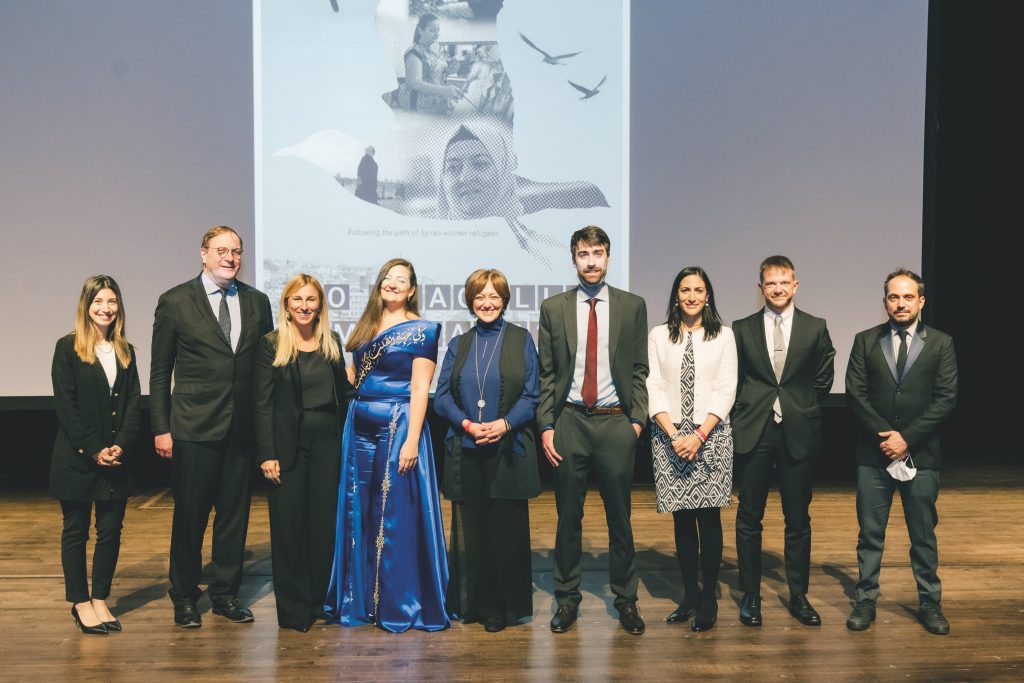
Vision for 2022
In 2022, the Atlantic Council IN TURKEY will redouble its efforts to promote a positive and constructive agenda in bilateral and transatlantic relations based on mutual interests and opportunities. The program plans to host a strategic talk series with leading officials and experts from both countries on the myriad issues on the bilateral agenda and will continue its Congressional-Parliamentary Fellowship.
The program will also continue to promote Do Seagulls Migrate?, which will be shown at private screenings and film festivals in the United States, Europe, and Turkey prior to its public release. Looking ahead, the Atlantic Council IN TURKEY will host a conference on the regional clean energy outlook in Istanbul as part of its longstanding partnership on regional renewable energy development with the European Bank for Reconstruction and Development. The program is also planning to host events and produce reports focused on regional conflicts to help to support regional and global stability.
Next
Read the full report
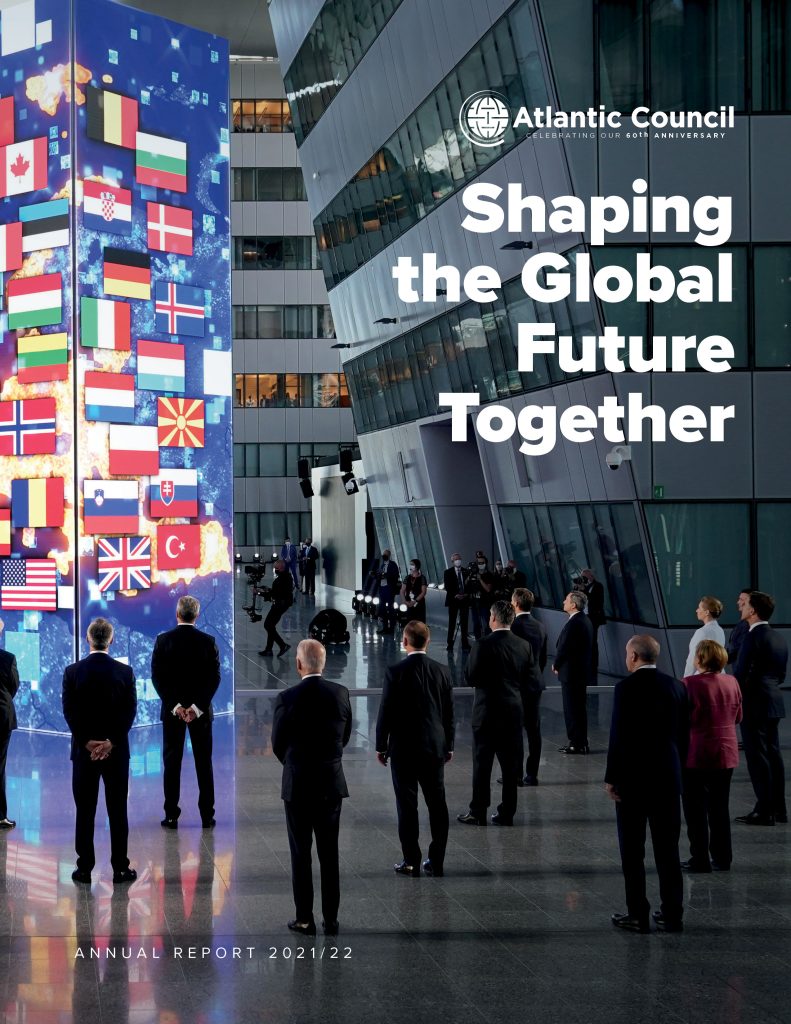
Annual Report 2021/2022
The Atlantic Council has never been more robust operationally, substantively, or financially in its sixty-year history. This comes at a time when our work has never been more crucial in the face of complex, daunting, and worldwide challenges.
Image: U.S. Secretary of State Antony Blinken meets with Turkish Foreign Minister Mevlut Cavusoglu on the sidelines of the UN General Assembly 76th session General Debate in New York, U.S., September 21, 2021. Kena Betancur/REUTERS
